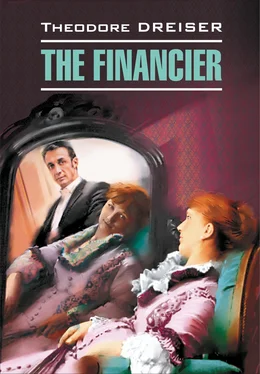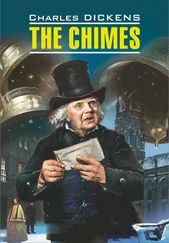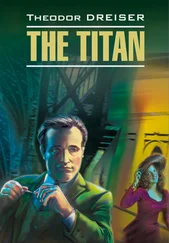1 ...8 9 10 12 13 14 ...35 Young Cowperwood would not have been admitted at all, as either a broker or broker’s agent or assistant, except that Tighe, feeling that he needed him and believing that he would be very useful, bought him a seat on ’change – charging the two thousand dollars it cost as a debt and then ostensibly taking him into partnership. It was against the rules of the exchange to sham a partnership in this way in order to put a man on the floor, but brokers did it. These men who were known to be minor partners and floor assistants were derisively called “eighth chasers” and “two-dollar brokers,” because they were always seeking small orders and were willing to buy or sell for anybody on their commission, accounting, of course, to their firms for their work. Cowperwood, regardless of his intrinsic merits, was originally counted one of their number, and he was put under the direction of Mr. Arthur Rivers, the regular floor man of Tighe & Company.
Rivers was an exceedingly forceful man of thirty-five, well-dressed, well-formed, with a hard, smooth, evenly chiseled face, which was ornamented by a short, black mustache and fine, black, clearly penciled eyebrows. His hair came to an odd point at the middle of his forehead, where he divided it, and his chin was faintly and attractively cleft. He had a soft voice, a quiet, conservative manner, and both in and out of this brokerage and trading world was controlled by good form. Cowperwood wondered at first why Rivers should work for Tighe – he appeared almost as able – but afterward learned that he was in the company. Tighe was the organizer and general hand-shaker, Rivers the floor and outside man.
It was useless, as Frank soon found, to try to figure out exactly why stocks rose and fell. Some general reasons there were, of course, as he was told by Tighe, but they could not always be depended on.
“Sure, anything can make or break a market” – Tighe explained in his delicate brogue – “from the failure of a bank to the rumor that your second cousin’s grandmother has a cold. It’s a most unusual world, Cowperwood. No man can explain it. I’ve seen breaks in stocks that you could never explain at all – no one could. It wouldn’t be possible to find out why they broke. I’ve seen rises the same way. My God, the rumors of the stock exchange! They beat the devil. If they’re going down in ordinary times someone is unloading, or they’re rigging the market. [32] If they ’ re going down in ordinary times someone is unloading , or they ’ re rigging the market . – Обычно, если акции падают, значит, кто-то выбрасывает их на биржу или искусственно понижает цены.
If they’re going up – God knows times must be good or somebody must be buying – that’s sure. Beyond that – well, ask Rivers to show you the ropes. Don’t you ever lose for me, though. That’s the cardinal sin [33] cardinal sin – тяжкий грех
in this office.” He grinned maliciously, even if kindly, at that.
Cowperwood understood – none better. This subtle world appealed to him. It answered to his temperament.
There were rumors, rumors, rumors – of great railway and street-car undertakings, land developments, government revision of the tariff, war between France and Turkey, famine in Russia or Ireland, and so on. The first Atlantic cable had not been laid as yet, and news of any kind from abroad was slow and meager. Still there were great financial figures in the held, men who, like Cyrus Field, or William H. Vanderbilt, or F. X. Drexel [34] Cyrus Field – Сайрес Филд (1819–1892), американский бизнесмен и финансист, основал Атлантическую Телеграфную Компанию, которая впервые в истории успешно проложила телеграфный кабель через Атлантический океан в 1858 г.; William H . Vanderbilt – Уильям Генри Вандербилт (1821–1885), американский бизнесмен, значительно расширил и укрепил сеть железнодорожных компаний, унаследованных от отца, Комелиуса Ван-дербилта; F . X . Drexel – видимо, имеется в виду Френсис Мартин Дрексель (1792–1863), американский банкир австрийского происхождения, основатель крупного банка Drexel & Co . (1837)
, were doing marvelous things, and their activities and the rumors concerning them counted for much.
Frank soon picked up all of the technicalities [35] technicalities – специальная терминология
of the situation. A “bull,” he learned, was one who bought in anticipation of a higher price to come; and if he was “loaded up” with a “line” of stocks he was said to be “long.” He sold to “realize” his profit, or if his margins were exhausted he was “wiped out.” A “bear” was one who sold stocks which most frequently he did not have, in anticipation of a lower price, at which he could buy and satisfy his previous sales. He was “short” when he had sold what he did not own, and he “covered” when he bought to satisfy his sales and to realize his profits or to protect himself against further loss in case prices advanced instead of declining. He was in a “corner” when he found that he could not buy in order to make good the stock he had borrowed for delivery and the return of which had been demanded. He was then obliged to settle practically at a price fixed by those to whom he and other “shorts” had sold.
He smiled at first at the air of great secrecy and wisdom on the part of the younger men. They were so heartily and foolishly suspicious. The older men, as a rule, were inscrutable. They pretended indifference, uncertainty. They were like certain fish after a certain kind of bait, however. Snap! and the opportunity was gone. Somebody else had picked up what you wanted. All had their little note-books. All had their peculiar squint of eye or position or motion which meant “Done! Itake you!” Sometimes they seemed scarcely to confirm their sales or purchases – they knew each other so well – but they did. If the market was for any reason active, the brokers and their agents were apt to be more numerous than if it were dull and the trading indifferent. A gong sounded the call to trading at ten o’clock, and if there was a noticeable rise or decline in a stock or a group of stocks, you were apt to witness quite a spirited scene. Fifty to a hundred men would shout, gesticulate, shove here and there [36] shove here and there – носились туда-сюда
in an apparently aimless manner; endeavoring to take advantage of the stock offered or called for.
“Five-eighths for five hundred P. and W.,” someone would call – Rivers or Cowperwood, or any other broker.
“Five hundred at three-fourths,” would come the reply from someone else, who either had an order to sell the stock at that price or who was willing to sell it short, hoping to pick up enough of the stock at a lower figure later to fill his order and make a little something besides. If the supply of stock at that figure was large Rivers would probably continue to bid five-eighths. If, on the other hand, he noticed an increasing demand, he would probably pay three-fourths for it. If the professional traders believed Rivers had a large buying order, they would probably try to buy the stock before he could at three-fourths, believing they could sell it out to him at a slightly higher price. The professional traders were, of course, keen students of psychology; and their success depended on their ability to guess whether or not a broker representing a big manipulator, like Tighe, had an order large enough to affect the market sufficiently to give them an opportunity to “get in and out,” [37] to “ get in and out ” – успеть вовремя купить и продать
as they termed it, at a profit before he had completed the execution of his order. They were like hawks watching for an opportunity to snatch their prey from under the very claws of their opponents.
Читать дальше












